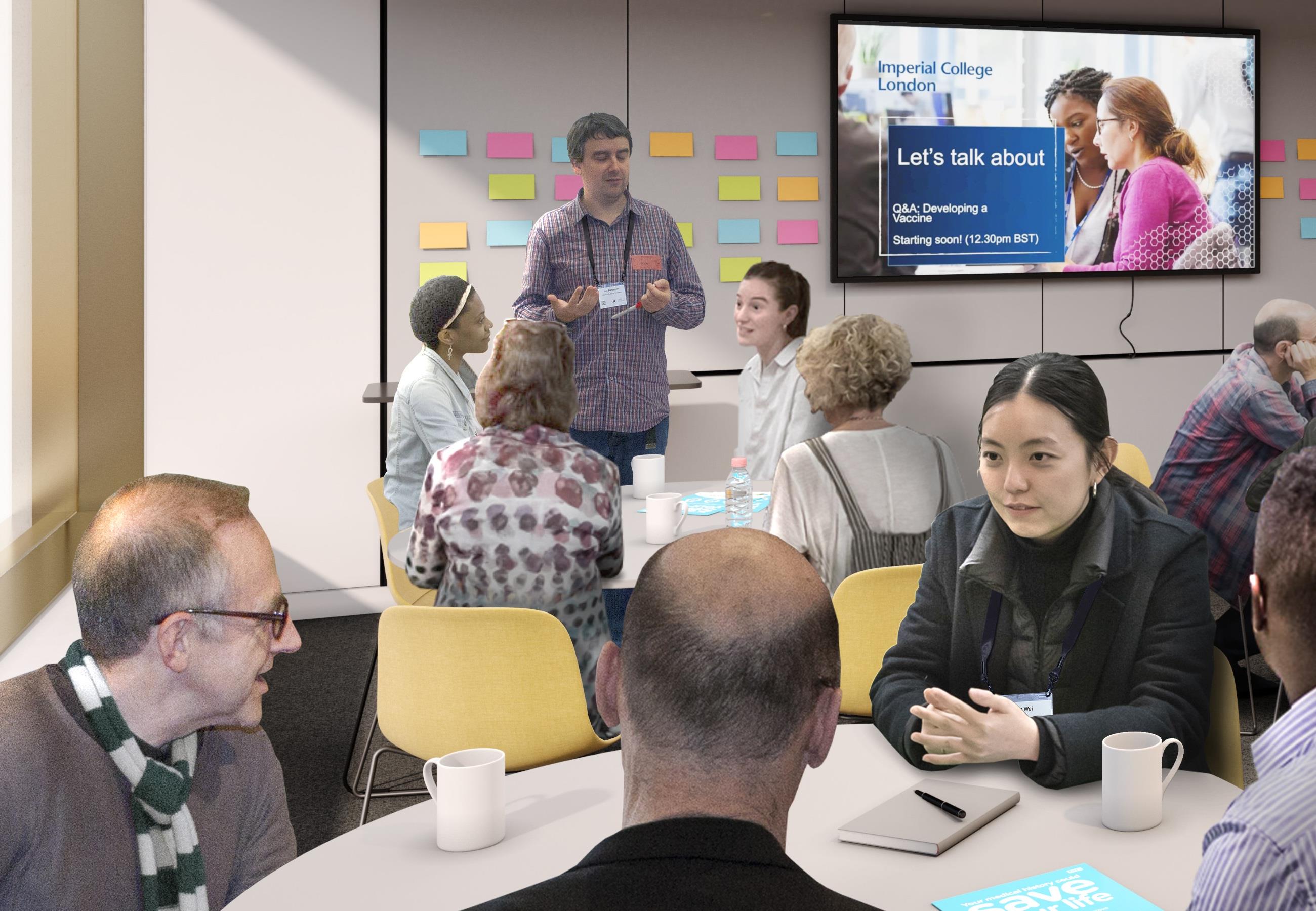Public and patient involvement
Public and patient involvement
At the heart of all our research is the goal of improving the lives of people affected by cancer. Embedding PPIE into cancer research strengthens science at every stage, from early discovery to clinical research. By involving patients and the public, researchers can design more relevant studies, improve recruitment, build trust, ensure findings have greater impact.
Even when translational benefits are not yet clear, early PPIE helps explore ethics, strengthen funding applications, foster long-term advocacy, spark fresh ideas and improve communication.
Involving patients and public in all stages of research creates research that is not only scientifically rigorous but also relevant and widely acceptable. Find out more about the benefits of PPIE and why it matters here.
Understanding the different terms associated with the inclusion of the public in health research is essential. Primarily, you will come across the terms "Engagement", "Involvement", and "Participation" Cancer Research UK provides the following definitions for these terms:

Engagement is where information and knowledge about research are shared with the public.

Patient involvement shapes cancer research using their experience. Consult, collaborate, or partner with patients, adding value at all research stages.

CRUK have compiled a comprehensive toolkit for researchers wanting to involve patient and public in all stages of research from developing idea, writing applications, carrying out the research and disseminating results.
PERC is a multidisciplinary group of clinicians, public health specialists and social scientists combining strengths in quantitative and qualitative research methods based at Imperial. PERC aim to promote active communication between patients, researchers and clinical staff to address real problems, and through this improve the quality of healthcare and the impact of translational research. They also have an online resource hub to provide guidance and support to researchers interested in involving patients and/or members of the public in their research outputs.
An online resource hub for both the public and researchers from the NIHR Biomedical Research Centre (BRC) at The Royal Marsden and The Institute of Cancer Research, London.
The UK Standards for Public Involvement are designed to improve the quality and consistency of public involvement in research. Developed over three years by a UK-wide partnership, the standards are a description of what good public involvement looks like and encourage approaches and behaviours that are the hallmark of good public involvement such as flexibility, sharing and learning and respect for each other. The standards are for everyone doing health or social care research and have been tested by over 40 individuals, groups and organisations during a year-long pilot programme. They provide guidance and reassurance for users working towards achieving their own best practice.
A list of charities and organisations that are able to support PPIE in research .
Patient-led projects and activities are championed through the Cancer Research UK Imperial Centre Public Involvement Group for Cancer. The Group meets regularly and can support researchers view a lay summary, review a Patient Information Sheet, prepare a grant application and find a patient representative for their study management committee.
NIHR offer services to researchers looking for individuals to take part in research.
A guide to data and AI in healthcare made for the public by the public and supported by experts in the field.
Imperial regularly hosts a series of workshops for researchers on how to involve the public in research. This course is aimed at researchers but is also suitable for patients and the public to learn how to support researchers develop their research ideas. Over four weeks you will learn how patients and the public can be involved across the research cycle. This ranges from identifying research topics important to patients, through to disseminating important findings to community group.
Members across the ICR and Royal Marsden Hospital can access training through the Biomedical Research Centre. See their website for the full options of training and other ways they support researchers in PPIE activities.
A platform where researchers can post PPIE opportunities as they arise and patients and the public can select which projects to be involved with.
VOICE is a passionate community of members of the public, patients & carer. In January 2019, Imperial became part of the VOICE network, an online platform and community for public engagement and involvement established at Newcastle University. Through VOICE, we hope to make it easier for our researchers to involve the public in what they do, and to inspire more members of the public to contribute their insights, experience and ideas at all stages of our research.
NIHR platform for public to be involved and researchers to find public members.
The Imperial Science Cafés are a unique opportunity for cancer researchers to present and discuss their research projects with individuals affected by cancer in a relaxed, open and informal setting. Usually, the Science Cafés are hosted at the Maggie’s Centre at Charing Cross Hospital or North West London.
ICPV is a patient advocate group independent of established UK cancer charities and aware of the value of medical research to both public health and to the national economy.
We embed PPIE throughout Centre activities and coordinate with colleagues across our partner institutions to prevent duplication and share best practice.

"Engaging with cancer patients was just the inspiration I needed to progress with my research after a very long and difficult year due to Covid-19. Their insights and contribution were really powerful and I learnt a lot which will undoubtedly shape my research."
Convergence Science Centre PhD student